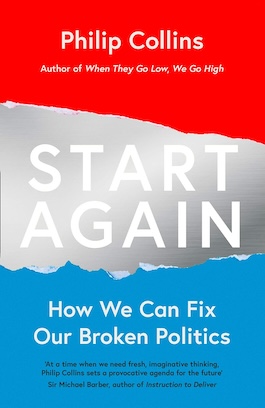
Philip was once a teacher and an equity strategist before becoming Tony Blair’s chief speech writer. As a writer for The Times and The New Statesman, Philip has explored the personalities, compromises and agenda of the leading political players as well as the broader nature of modern politics and society. Alongside examining what persuasive communication looks like, he also considers the power of speeches and storytelling.
Philip Collins is a speechwriter and author, a columnist with The New Stateman, he was a leader writer for The Times, and is the founder and writer-in-chief at The Draft, an agency that produces speeches and training programmes for senior business and public figures. He teaches rhetoric and communication at the Blavatnik School of Government in Oxford and the School of Public Policy at the London School of Economics.
Between 2004 and 2007 Philip was both the Chief Speech Writer and the advisor on Culture, Media, and Sport to Prime Minister Tony Blair. He has also written speeches for Sir Keir Starmer as leader of the Labour party. Before his time working at Number 10, Philip had spells as the Chair of Trustees at the think tank Demos, Director of the Social Market Foundation, and as an Equity Strategist at HSBC and Dresdner Kleinwort Benson.
As a political writer, and someone who knows the key players, Philip comments on the state of the nation’s politics, in particular the challenges facing government. As a speech writer and strategic adviser to business on communication, he can also share the vices and virtues of telling a corporate story and can describe what good communication looks like and what goes into achieving it.
Philip has written extensively on the history of, and best practices in speaking and communication, including his books To Be Clear and When They Go Low, We Go High. He's also explored the fracturing of old political ideas of left and right in his book Start Again - How We Can Fix Our Broken Politics. As well as writing for The Times for over a decade, he has written for The Spectator, The Evening Standard, The Telegraph and Prospect (where he was associate editor).


